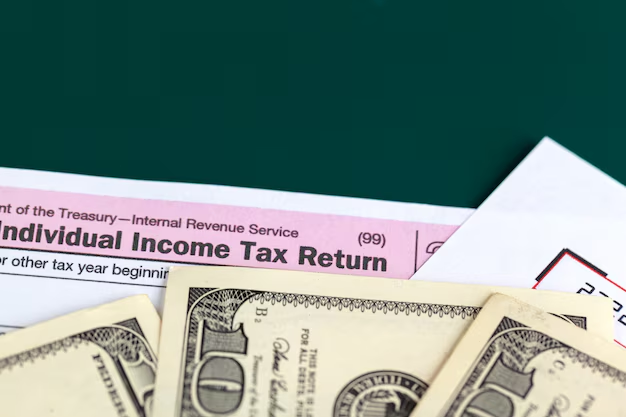Navigating the Unemployment Maze: Should You Withhold Taxes From Your Benefits?
Unemployment can hit like a curveball, leaving you scrambling to balance budgets and manage expenses until you're back on track. Among the cascade of decisions you’ll need to make when you file for unemployment benefits is whether or not to withhold taxes. It might seem like a small decision, but it can significantly impact your financial stability both short-term and during tax season. Let's dive into the intricacies of unemployment taxes to shed light on why you might choose to withhold taxes on your benefits—or why you might decide against it.
The Basics of Unemployment and Taxes
Unemployment Benefits Overview
When you lose a job through no fault of your own, unemployment benefits provide temporary income to ease the transition. These benefits help cover essential living costs while you search for new employment. Understanding the nuts and bolts of employment benefits can empower recipients to make informed financial decisions.
Are Unemployment Benefits Taxable?
Yes, unemployment benefits are subject to federal income taxes, just like wages or salaries. At the federal level, these benefits are considered taxable income. Many states also levy taxes on unemployment benefits; however, a handful do not. As always, it's crucial to be aware of your state's specific requirements.
To Withhold or Not to Withhold: The Big Question
Reasons to Withhold Taxes
Avoid a Surprise Tax Bill: By choosing to withhold taxes, you reduce the risk of facing an unexpected tax bill when you file your income taxes. This strategy mirrors how taxes are typically managed when you're employed, with deductions spread throughout the year.
Simplicity and Convenience: Electing to withhold taxes from the start makes your tax filing process more straightforward when the time comes. Instead of scrambling to pay a tax bill, you may already be covered through withholding.
Financial Peace of Mind: The certainty of knowing you are tax-compliant can alleviate some of the stress associated with unemployment.
Reasons Against Withholding Taxes
Immediate Cash Flow: Opting out of withholding means receiving larger payments now, which can be critical if you're trying to stretch limited funds to cover immediate expenses like housing, utilities, and groceries.
Temporary Situation: If you only expect to be unemployed for a short duration or anticipate significant deductions during tax filing, withholding might not be necessary.
Personal Financial Strategy: Some individuals prefer to manage their funds independently and plan to save or invest some money to cover their tax obligations later on.
The Mechanics: How to Set Up Withholding
If you decide to withhold taxes from your unemployment benefits, the process is relatively simple. When you apply for unemployment, you'll be given the option to have federal taxes withheld. Generally, 10% of your unemployment payment can be withheld for federal taxes. Check your state’s policies, as state tax withholding can differ.
Making the Choice: A Checklist
- Assess your financial needs: Are there urgent expenses that require all available funds?
- Evaluate your potential tax obligations: Consider your other income sources and tax bracket.
- Review your savings and resources: Do you have savings that can be used strategically to pay taxes later?
- Stay informed about your state’s policy: Ensure that you understand local requirements concerning unemployment taxes.
Tactics for Managing Your Tax Obligations
Budgeting Wisely: Use a budgeting app or method to track your income and expenses closely. This helps maintain awareness of your financial state and anticipate any need for adjustments.
Saving Strategically: Consider setting aside a portion of your benefits if you opt not to withhold taxes. This way, you will have a buffer when tax season arrives.
Exploring Tax Credits and Deductions: Stay informed about any credits or deductions that you might qualify for, as they can reduce your overall tax burden.
Timing and Planning: When Is It Best to Decide About Withholding?
Your decision about whether to withhold taxes should align with your broader financial picture. If you foresee significant changes such as securing new employment quickly, your strategy might adapt over time.
Summary Table: Tips for Managing Unemployment Taxes
| Decision Point | Benefits of Withholding | Advantages of Not Withholding |
|---|---|---|
| Immediate Financial Needs | Smaller payments assist in painless tax time | Full benefits allow for more cash flow |
| Ease of Tax Filing | Simplifies tax season prep | Independent savings strategy |
| Risk Management | Avoid surprise tax bills | Greater control of current funds |
Informed Choices Lead to Financial Stability
Decisions around withholding taxes from unemployment benefits shouldn't be taken lightly, as they can significantly alter your financial landscape. The choice boils down to predicting what will best support both your immediate and future financial health. Reflect on your current situation, consider speaking with trusted financial advisors, and plan accordingly to navigate unemployment smartly. By understanding all the angles, you can make informed decisions that align with your unique circumstances, steering you towards a more stable financial future.

Related Topics
- Are Unemployment Checks Taxed
- Are Unemployment Payments Taxed
- Can Unemployment Take Your Taxes
- Do Employees Pay Unemployment Tax
- Do I Have To Pay Taxes On Unemployment
- Do I Want 6 Withheld Of Taxes From Ga Unemployment
- Do You Have To Pay Tax On Unemployment
- Do You Have To Pay Taxes For Unemployment
- Do You Have To Pay Taxes On Unemployment
- Do You Need To Pay Taxes On Unemployment
